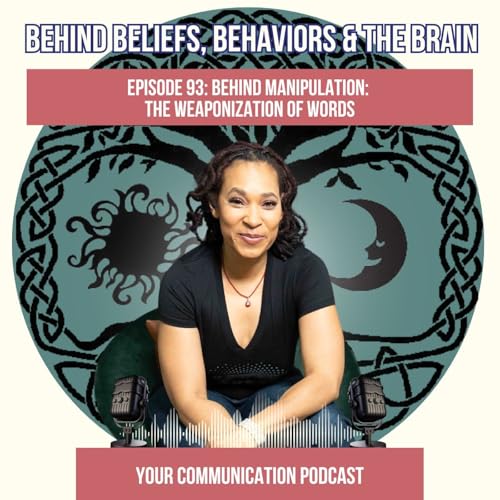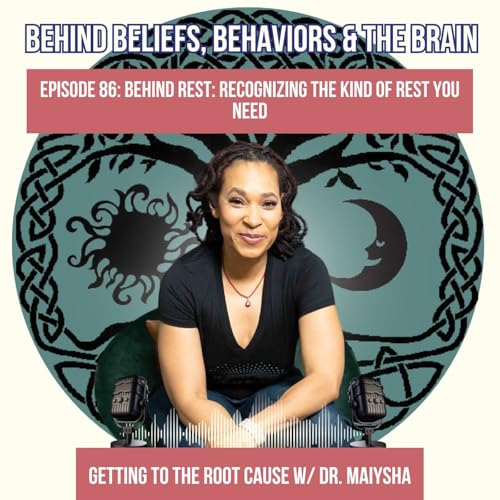As I continue revisiting trauma and the many ways it shows up in our lives, this conversation focuses on how trauma can influence the roles we unconsciously step into during moments of stress, conflict, or emotional threat. The persecutor. The victim. The rescuer.
These roles are not personality traits. They are learned survival strategies. And when we are under pressure, especially when our nervous system is activated, we can default to one of these roles without awareness.
In this episode, I unpack how the Drama Triangle shows up in families, friendships, workplaces, and teams, how these roles shift depending on context, and why these dynamics can be retraumatizing when they go unnamed. I also share how awareness, emotional regulation, and intentional communication can help us step out of these patterns and move toward repair and healing.
The Drama Triangle Is a Survival Pattern, Not an Identity The roles of persecutor, victim, and rescuer emerge when the nervous system perceives threat. These roles are often learned early and reinforced over time, especially in environments where safety, attunement, or accountability were inconsistent.
Roles Are Fluid and Contextual You may occupy different roles in different relationships. Someone who feels victimized in one environment may become a persecutor in another. These shifts often happen automatically when emotional regulation is low.
Trauma Makes These Roles Feel Familiar When trauma goes unaddressed, the Drama Triangle can become a default pattern. We carry it from relationship to relationship, workplace to workplace, unless we become aware of it.
The Body Recognizes the Pattern First Before the mind has words, the body signals what is happening. Tension, urgency, defensiveness, or shutdown are often the first clues that we are being pulled into the triangle.
Rescuing Can Maintain Harmful Dynamics Rescuing may feel helpful, but it can reinforce dependency and prevent accountability. Stepping back is sometimes the most supportive and regulated response.
Awareness Is the First Step Out We cannot change a pattern we do not recognize. Naming the dynamic internally or out loud creates space for choice rather than reaction.
Helpful Resources - Recognizing the Triangle in Everyday Interactions - Pay attention to moments when you feel compelled to fix, blame, defend, or withdraw. These urges often signal that a role is being activated.
- Stepping Out Instead of Playing Along - Breaking the triangle does not require confrontation. It requires awareness, regulation, and the willingness to respond differently than you normally would.
- Repair Requires Emotional Regulation - True repair can only happen when the nervous system is regulated enough to engage honestly. Slowing down allows for reflection, accountability, and behavioral adaptation.
Follow Dr. Maiysha on Social media Facebook: www.facebook.com/DrMaiysha
Instagram: www.instagram.com/DrMaiysha
Youtube: www.YouTube.com/DrMaiysha
Hosted by: Dr. Maiysha Clairborne
Communication is the foundation of everything and everything happens in communication. If you’re ready to take your communication to the next level, our Communication That Transforms course dives deep into creating psychological safety, handling crucial conversations, navigating conflict, and cultivating trust in a way that truly leaves the people in your life feeling seen, heard, respected and valued. It will transform how you lead and how you show up in all of your relationships . Learn more and register at www.mindremappingacademy.com/ticc. If you are a leader and your employees or teams are struggling with team dynamics, consider taking them through our new “Communications That Transforms” group cohort.
See the full course breakdown and get a free preview of key modules to experience the value. Go to https://mindremappingacademy.com/course-catalogue and schedule a call with Dr. Clairborne at www.mindremappingacademy.com/corporate-programs
 Feb 23 202630 m
Feb 23 202630 m Feb 16 202615 m
Feb 16 202615 m 20 m
20 m 20 m
20 m Jan 26 202647 m
Jan 26 202647 m 22 m
22 m 21 m
21 m 26 m
26 m
